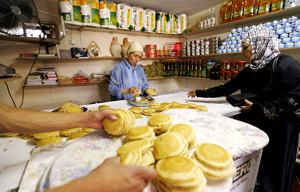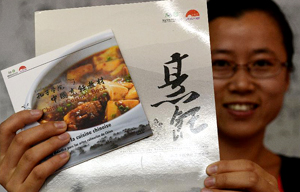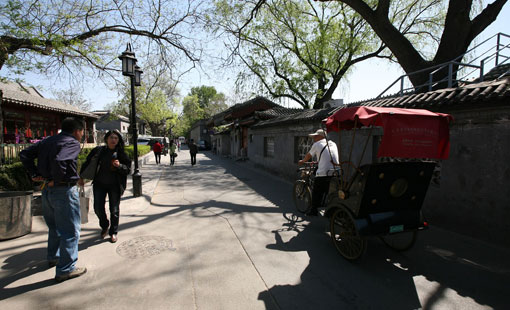
|
Shi Yan (left) and her team of more than 20 co-workers live and work at Mafang village in suburban Beijing for the CSA cause. Photos provided to China Daily |
Farmers supported by their communities may be the answer to China's concern over food safety, efficient land use and the unbalanced distribution of rural-urban demographics. Sun Ye goes out into the countryside to find out if this model will work for the country.
The physical manifestation of the trend is a box of vegetables that appears on the doorstep every week, filled with seasonal produce with an occasional wormhole, but is still warmly welcomed. It is also the chance to meet and get to know the farmer who supplies the box, and the opportunity to bring the children down to the farm to take part in the sowing and the harvesting.
It is the building of a community, one that is prepared to pay a premium up ahead for the assurance that vegetables on the table are grown according to safe practices, are sustainable, seasonal and as far as possible, free from an overload of pesticides. It is a chance to meet and meld with other members of the community who have the same passion and beliefs.
This is what community-supported agriculture (CSA) looks like in China, for now. But looking beyond the summer tomatoes and winter cabbages that are purchased even before they are sown, CSA is a new concept that goes against the traditional, or is a return to old systems - depending on how you look at it.
More importantly, it is a trend triggered by rampant food-safety problems thrown up in attempts to adequately feed a growing country of 1.35 billion. Huge waves of urban migration are yet another problem as the younger generations abandon the hard and thankless efforts of cultivation in their villages and head out to the bright lights.
CSA encourages young farmers to go back to the land, and offers them a business model that gives them insurance against fluctuating prices brought on by inclement weather, unpredictable harvests and natural disasters.
CSA involves the communities around the farms, and is a model that has worked with varying success in North America, Australia and New Zealand.
In China, CSA is only at its juvenile stages, and it may grow up to be a very different child.
Shared Harvest in suburban Beijing takes its name from a CSA guidebook. It has also become living proof for this farming model since its inception in mid-2012. It is a cooperative that supplies more than 400 members with weekly boxes of green vegetables - all of which have been paid for upfront.
This new initiative has also helped its farmers, by educating them on agricultural methods that are sustainable, with an emphasis on the long-term rather than short-term bounties.
For example, the farmers would probably not have given up the use of pesticides on their own.
"It's simply scary," says Liu Xiancang, the director of the Liu village co-op that's responsible for supplying the vegetables that get sent out to Shared Harvest members.

Top 10 foods for a cleaner smile |

2013 Chinese New Year |

Hidden dragons, crouching tigers |

Soap beans, silver ears and peach gum |

The first day of Ramadan |

'Master Pizzaioli' school |

Chinese cuisine book of Confucius Institute released |

British celebrity chef Gordon Ramsay in Singapore |

Mountain Resort, Chengde |

Fantastic Beijing -- Hutongs |

Nature, art, durians & roti |

Mountainous areas in Beijing's Huairou |